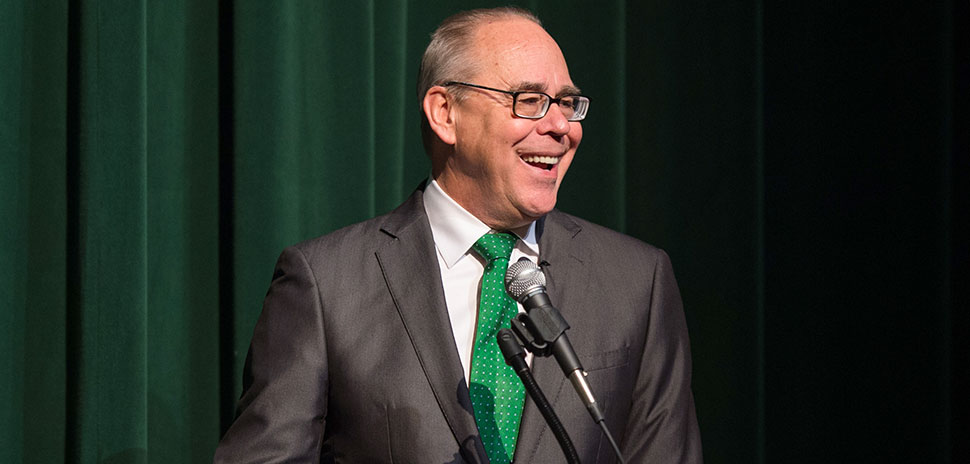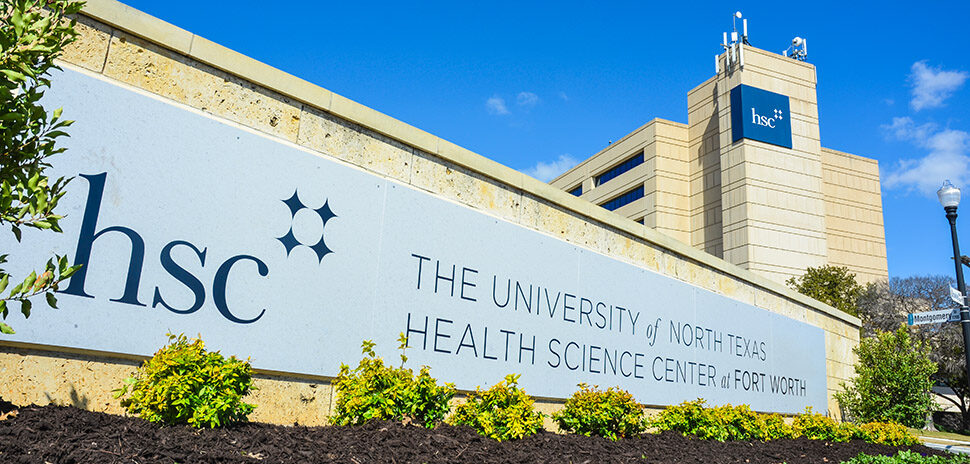Neal Smatresk, president of the University of North Texas, offered his thoughts on how universities like UNT embrace technology and innovation in education and in their practices.
In what ways do you think technology has most transformed education? What big changes do you foresee on the horizon?
In my nearly 35 years of higher education, I’ve seen that universities like UNT typically embrace technology quickest and most noticeably in the classroom because we always are striving to provide the best possible educational experience for our students. Online education and tools like Blackboard Learn — a web-based course delivery, collaboration, and assessment platform we use at UNT — all enhance learning and deliver education in more impactful, convenient ways.
The most impressive thing I’ve seen in recent years is the use of predictive analytics in higher education.
Technology also powers the blended learning model that mixes online and face-to-face instruction — something many universities have adopted to produce better learning outcomes. And technology drives new delivery models like our Accelerated Online Programs, allowing students to earn their master’s degrees in as little as a year through eight-week sessions.
Technology also impacts what we do outside of the classroom. Like all universities, UNT focuses on retention and graduation to make sure our students stay in school and earn their degrees in a timely fashion. We rely on technology and data to track students through their educational journey and identify those in need along with pressure points that may be creating obstacles for them.
As you can imagine, the tools have become more sophisticated. The most impressive thing I’ve seen in recent years is the use of predictive analytics in higher education. More universities are using it to improve students’ experiences. It enables you to use and break down data to really understand your students, anticipate their needs and provide assistance — with more speed, sophistication, and precision than ever before. It allows us to analyze data in ways that will give us early warning if students are in trouble so we can effectively intervene to keep them in school and help them graduate on time.
At UNT, we want to use our data in a smarter way, not just collect more, and we’re looking at ways to most effectively use predictive analytics tools. But no matter what the technology is, it shouldn’t replace face-to-face interaction and individualized attention. We have excellent, caring faculty and staff who are attuned to our students’ needs and work hard to keep them on a successful track. They are our best early-alert and intervention resources.
What qualities will the teacher of the future need in an increasingly tech-driven society?
It’s no longer enough to be computer literate or know your way around Microsoft Office programs. In our tech-driven world, I think it’s imperative that everyone in the workforce — not just teachers — understands technology and data.
In our tech-driven world, I think it’s imperative that everyone in the workforce — not just teachers — understands technology and data.
Today’s students need to learn a little bit of everything, from big data to marketing to communication to social media, because this is essential knowledge for a modern workforce. To meet this need, we’re constantly creating more courses and majors — whether in our business, engineering, or journalism programs — so that students can master those skills and use them in any field. Virtually every industry is using these tools to run and improve its business, and having a solid foundation can go a long way.
What are the next steps schools need to take to better prepare students for future careers and/or entrepreneurship?
As industries evolve, so must universities. At UNT, we continually evaluate our course offerings and programs to ensure that we are delivering the right programming for the industry as things stand today — and adjust as needed. For instance, the U.S. Labor Department predicts that one of the fastest-growing areas in engineering will be biomedical engineering, with jobs expected to grow 23 percent by 2024. As a response, in 2014 we launched a biomedical engineering program so students can earn bachelor’s and master’s degrees and pursue careers in this growing field. That’s been the impetus of many of our new programs and focus areas.
What are the biggest challenges facing education in 2017 and how can universities overcome them?
In our nation, high school graduating class numbers are in decline and the number of college-qualified students is leveling out. The competition for college-bound students is becoming fierce, and the North Texas region is a prime recruiting ground for every major institution in this country.
Universities must determine what makes them stand out to students and let that be their selling point. At UNT, we give students an excellent education with a personal touch, a quirky culture that is steeped in creativity, and unique opportunities to grow and learn. That’s why students choose UNT, and we’re making sure to tell that story far and wide.
Ultimately, we’re focused on providing the right kinds of degrees to help our students get jobs and support businesses and the economy. We’re looking at all of the ways we can add value to our students’ education, helping them grow as people, and build successful careers and lives. That should always be a core part of any university’s mission and approach to delivering education.
What schools or education programs come to mind when you think “innovation”? What lessons can others learn from them?
There are a lot of ways you can be innovative in education. We’re taking cues from the business world where companies like Google have innovation labs. In 2017, we’re opening the UNT Collab Lab as the ultimate collaboration and incubator center for our students, faculty, and staff. It will be a place that encourages the mashup of creativity, technology, and entrepreneurship. We got the idea for the Collab Lab from one of our computer science students who makes video games and wanted a way to connect with students in areas like design, art, and writing to bring his vision to life.
The lab will foster innovation and entrepreneurship by bringing people together and giving them the right environment to imagine and collaborate. For instance, it will have pop-up restaurants that our students will run, operate, and advertise — so it lets students from a variety of disciplines like hospitality, business, marketing, and art and design work together and learn how to run a business.
[In 2016], we introduced our inaugural UNT Innovator Awards to spur out-of-the-box thinking and reward creativity and innovation from our faculty, staff, and students. All of this is aimed at fostering an environment that encourages imagination and creativity.
Delivering what’s new and next in Dallas-Fort Worth innovation, every day. Get the Dallas Innovates e-newsletter.






























